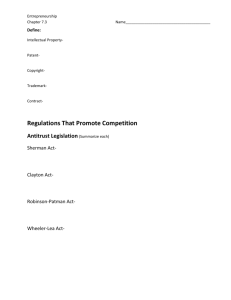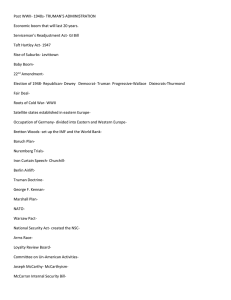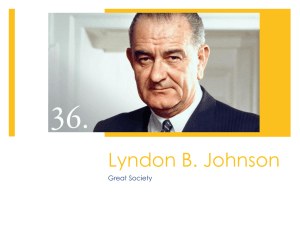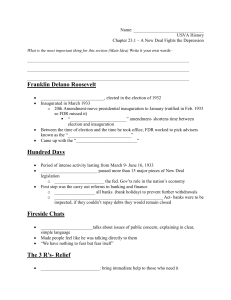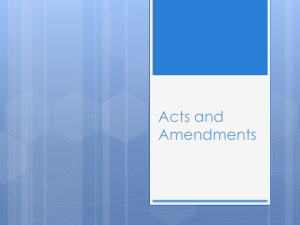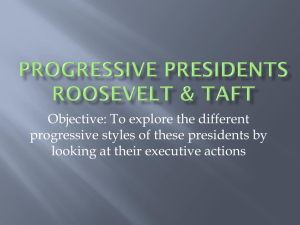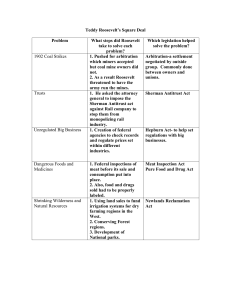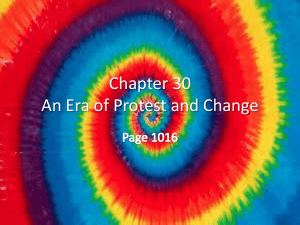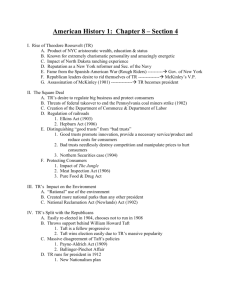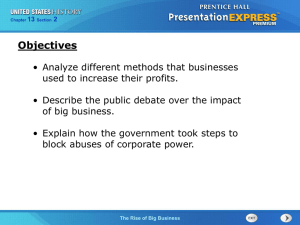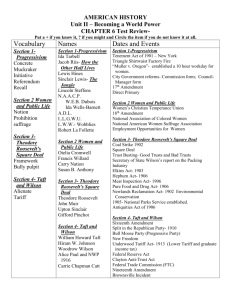Chapter 10 Section 2 Notes Roosevelt and the Square Deal
advertisement
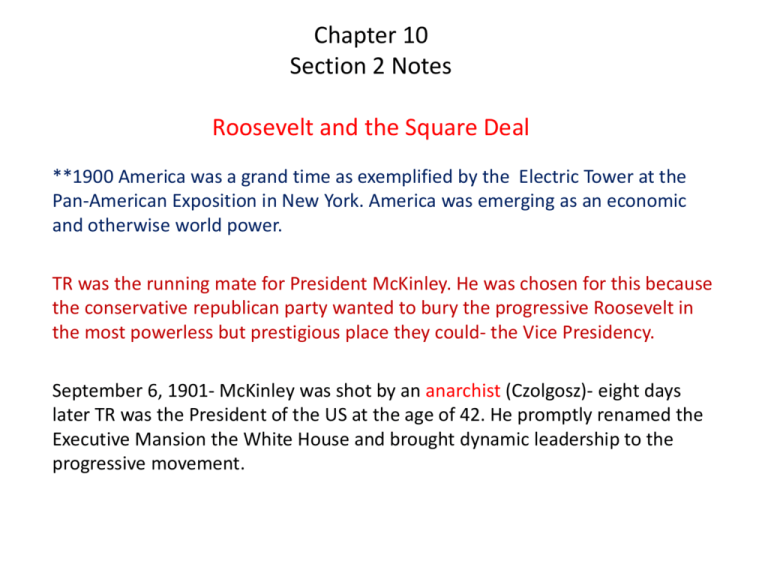
Chapter 10 Section 2 Notes Roosevelt and the Square Deal **1900 America was a grand time as exemplified by the Electric Tower at the Pan-American Exposition in New York. America was emerging as an economic and otherwise world power. TR was the running mate for President McKinley. He was chosen for this because the conservative republican party wanted to bury the progressive Roosevelt in the most powerless but prestigious place they could- the Vice Presidency. September 6, 1901- McKinley was shot by an anarchist (Czolgosz)- eight days later TR was the President of the US at the age of 42. He promptly renamed the Executive Mansion the White House and brought dynamic leadership to the progressive movement. TR’s Different Approach Prior to TR presidents usually took a “hands-off” approach to government Not TR- He thought the president should be the leader of government “Bully Pulpit”- TR felt the President should use the presidency to speak out on vital issues. One of TR’s goals as president was to fight class distinctions In TR’s words “No republic can permanently exist when it becomes a republic of classes.” The United Mine Workers Strike In the Spring of 1902 150,000 coal miners struck for higher wages and recognition of their union. 1. 2. The mine owners refused to negotiate Spurred by Washington Gladden thousands signed a petition for TR to intercede 3. Conservatives wanted TR to send in the US Army 4. Progressives wanted the gov’t to take over the mines 5. TR encouraged the sides to agree to arbitration- using a 3rd party 6. Nothing happened for awhile until TR threatened to take over the mines 7. Both sides got some of what they wanted- workers-shorter hours and more $. Owners did not have to recognize the union. *Precedent- This was the 1st time the gov’t had intervened to protect workers and the public The Square Deal • The Square Deal was TR’s 1904 campaign slogan. It means that everybody has a fair chance- no more or no less. *TR won the election easily- the conservatives didn’t dare challenge him Regulating Business TR believed big business was essential BUT it should be regulated to serve the public good • TR won a 1902 case against Northern Securities (JP Morgan, James Hill and EH Harriman) that they monopolized RR’s in violation of the Sherman Antitrust Act- in 1904 the Supreme Court agreed. • Next year TR filed 44 Antitrust suits. TR didn’t hate wealth just “misconduct” RR Regulation TR promoted RR regulation: 1. 1903 Elkins Act- Forbade shipping Co’s from accepting rebates. Supported by politicians and RR owners 2. 1906 Hepburn Act- Authorized the Interstate Commerce Commission (ICC) to regulate interstate RR rates and pipeline co’s Overall effect was a strengthening of federal power and turning the ICC into an important regulatory agency Food and Drug Safety Many food companies were adding dangerous chemicals to food to make spoiled products appear fresh- making a lot of people sick. Many drugs were mislabeled or made false claims. After Upton Sinclair published The Jungle the public demanded action. Result: 1906 Meat Inspection Act and The Pure Food and Drug Act which is why we have ingredient labels on our products and medicines. Protecting the Environment TR believed that it was important to “conserve” our natural resources for future generations. This may be TR’s greatest legacy. Gifford Pinchot was a friend of TR’s who promoted conservation • • • • TR’s Conservation Accomplishments Reclamation- Turning damaged land into productive land 16 National Monuments 51 Wildlife Refuges Creation of the National Park Service
